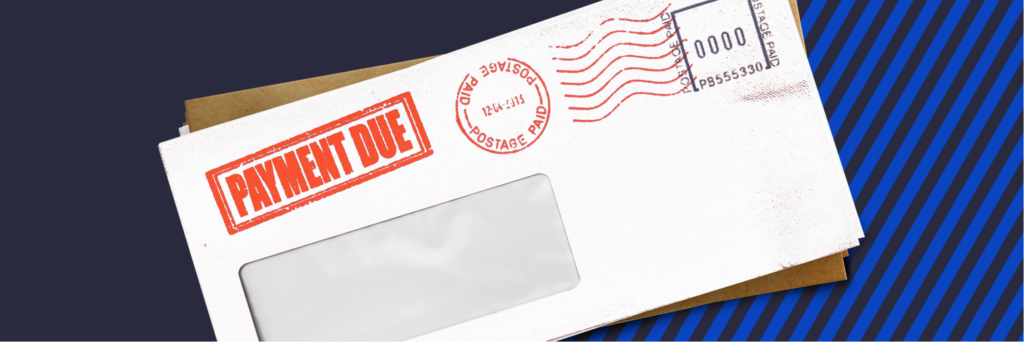Thinking about a personal loan? It could be a great solution to pay for unexpected costs, urgent expenses, or to consolidate debt. Taking out a personal loan may also help build your credit when you make payments on time and when you use it to pay off revolving credit like credit card debt.
When you apply for a personal loan, the lender typically reports it to the major credit reporting agencies. That means it shows up on your credit report, and may slightly lower your credit score for a short time. Here’s what else you should know about how a personal loan may affect your credit score.
How Do Personal Loans Hurt Your Credit Score?
A personal loan is debt. How you manage that debt, and the amount of debt you have, impacts your credit score. Here’s how a personal loan can hurt your credit score.
It Triggers a Hard Inquiry On Your Credit Report
When you apply for a personal loan, the lender will run a credit check on you and that inquiry will show up on your credit report. A new inquiry can temporarily lower your credit score, but as long as you consistently pay your bills on time, your score may rebound quickly.
Curious to know what your personal loan options may be with Avant? You can check your eligibility without affecting your credit score.
It Increases Your Debt
When you take out a personal loan, you add to the amount of debt you owe. This may impact your credit score if the new loan has a high balance and if you have other high balances on other credit accounts. Since your debt-to-available-credit ratio makes up a good chunk of your FICO credit score, paying down the amount you owe can help to boost your score over time.
Missed Payments May Affect Your Credit
If your payment on your personal loan is 30 days or more past due, your lender will likely report that to the credit reporting bureaus, which could significantly lower your credit score. That late payment could also stay on your credit report for seven or more years. Setting up some simple strategies can help you stay on top of loan payments.
Paying Off a Loan May Impact Your Credit Score
Taking out a personal loan and managing repayments promptly shows you can manage different types of debt (like credit cards and personal loans) over time. However, when you pay off your personal loan, you may change that credit mix, particularly if your account closes once you pay off the loan. That, in turn, may impact your credit score.¹
¹Experian – Paying off a Personal Loan Early
Check Your Avant Loan Options
Checking your personal loan options does not impact your credit score.
How Do Personal Loans Build Your Credit?
Personal loans may positively impact your credit history and have the potential to boost your score when used the right way. Here are some ways a personal loan can help build positive credit history:
You Get Points for On-time Payments
Each month when you pay your loan on time, you show responsibility in handling debt. Making on-time payments is the easiest way to build a positive credit history. It’s also important: Your payment history makes up 35% of your FICO score, so paying on time is a critical component of your credit score calculation.
You Improve Your Credit Mix
A personal loan is an installment loan, which is different from a credit card. While a credit card is a type of revolving credit, a personal loan is a type of non-revolving credit. A non-revolving line of credit is a one time arrangement where the account is closed once the credit line is paid off. Revolving credit, on the other hand, remains open until the lender or borrower closes the account. Taking out a personal loan and managing your payments well shows you can manage a mix of different types of credit.
You May Lower Your Credit Utilization Ratio
When you have credit cards, your credit report includes your credit utilization ratio – the amount of credit you are using, measured against the total amount of credit available to you. The lower your credit utilization ratio, the better. So, if you have a total credit limit of $2,000 between all your credit cards and you have balances totaling $1,000, you’re utilizing 50% of your credit. According to Experian.com, it is recommended that you keep your total credit utilization rate below 30%.
Consolidating debt by taking out a personal loan to pay down or pay off your credit card balances can help to lower your credit utilization ratio. You consolidate multiple debts into one and only have to worry about one monthly payment. However, if you decide to go this route, it’s important to make your payments on time.
How Much Does a Loan Affect Your Credit Score?
According to data from Transunion, consumers pay down just over 58% of their credit card debt with new debt consolidation loans. More than 60% of consumers who consolidated their credit card debt saw their balances decline by 60% or more from pre-consolidation levels. The resulting drop in credit line utilization, together with other factors, led to a boost in credit scores for the majority of consumers who employed a debt consolidation loan.
Following consolidation, 68% of consumers saw their credit scores improve by more than 20 points. What’s more, while the initial score boosts were apparent after just one quarter, score improvements persisted a year later (albeit at lower levels).
Source materials for this data can be found from the following resources:
Learn More About Avant Personal Loans
Learn more about how to secure a personal loan through Avant. You can apply online from anywhere and checking your personal loan options does not impact your credit score.
The information provided on this website does not, and is not intended to, constitute legal, financial, or tax advice; instead, all information, content, and materials available on this site are for general informational purposes only. Information on this website may not constitute the most up-to-date legal, financial, tax or other information. This website contains links to other third-party websites. Such links are only for the convenience of the reader, user or browser; Avant does not recommend or endorse the contents of the third-party sites.
Avant branded credit products are issued by WebBank.
Avant, LLC is a financial technology company, not a bank.
* Loan amounts range from $2,000 to $35,000. APR ranges from 9.95% to 35.99%. Loan lengths range from 12 to 60 months. Administration fee up to 4.75%.
* If approved the actual loan amount, term, and APR amount of loan that a customer qualifies for may vary based on credit determination and state law. Minimum loan amounts vary by state.
** Example: A $5,700 loan with an administration fee of 4.75% and an amount financed of $5,429.25, repayable in 36 monthly installments, would have an APR of 29.95% and monthly payments of $230.33.
†The decision process may take longer if additional documents are requested. Approval and loan terms will vary based on credit determination and state law.
‡ Funds are generally deposited via ACH for delivery next business day after approval if approved by 4:30pm CT Monday-Friday.
Avant of Washington, LLC DBA Avant is a wholly-owned and operated subsidiary of Avant, LLC Nationwide Multistate Licensing System #1440089.
Avant, LLC Nationwide Multistate Licensing System #1243761.
Connecticut consumers: all marketing efforts are associated with Avant of Connecticut, LLC d/b/a “Avant”, Small Loan Company License #SLC-1457409
THIS IS A LOAN SOLICITATION ONLY. AVANT, LLC IS NOT THE LENDER. INFORMATION RECEIVED WILL BE SHARED WITH ONE OR MORE THIRD PARTIES IN CONNECTION WITH YOUR LOAN INQUIRY. THE LENDER MAY NOT BE SUBJECT TO ALL VERMONT LENDING LAWS. THE LENDER MAY BE SUBJECT TO FEDERAL LENDING LAWS.




